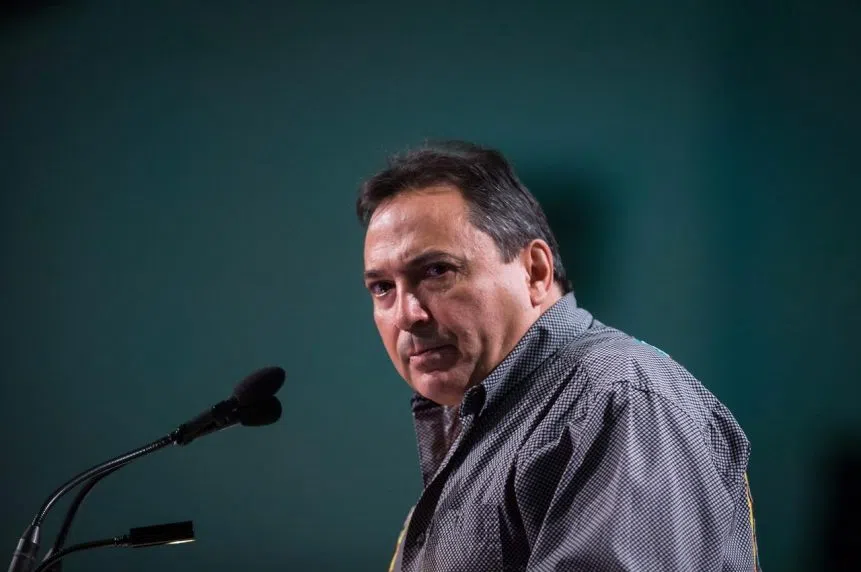REGINA — The national chief of the Assembly of First Nations is raising concerns about Saskatchewan’s social services minister referring to national Indigenous groups as lobbyists.
Social Service Minister Paul Merriman said earlier this week in Saskatoon that he and his fellow provincial ministers were unable to speak about child welfare reform directly with their federal counterpart without national Indigenous organizations being present.
“It creates a little bit of an issue if we can’t, as a provincial and territory (group), have a conversation with our federal minister without a lobbyist in the room,” he said in a recent interview.
In a letter obtained Friday by The Canadian Press, AFN Chief Perry Bellegarde told Merriman that First Nations are neither lobbyists nor stakeholders.
“As national chief, I am elected by chiefs who in turn are elected by their citizens, just as you are elected by your citizens,” Bellegarde wrote.
Bellegarde said with Saskatchewan’s high rates of Indigenous children in care, the status quo in the province is not acceptable.
Any discussions on child welfare need to happen with those who are most affected, he said.
“At a very basic level, it simply makes sense to include First Nations on matters that impact them.”
Late Friday, Merriman issued a statement to clarify his remarks about using the term lobbyist, but he said there was still a need for a separate meeting with Ottawa about child welfare reform.
“I have received the letter from Chief Bellegarde and recognize that ‘lobbyist’ is not the correct word in communicating the important role of national Indigenous organizations in this discussion,” he said in an email.
“My intention was to convey their role as an active party in this discussion that is seeking change to the current system.”
Merriman said he was glad national Indigenous organizations have been part of the conversation about the legislation.
But, “In addition to these conversations, provinces and territories wanted to have a separate conversation with the federal government about the implementation and timing of Bill C-92, particularly relating to how it will affect our existing agreements and operations,” he wrote.
“As current agreements are held at the provincial level, provinces felt it would be appropriate to communicate directly to the federal government the importance of current agreements that are in place with our respective Indigenous partners, and how this legislation will affect them.”
The Federation of Sovereign Indigenous Nations also issued a statement Friday calling Merriman’s position troubling.
The group, which represents 74 First Nations in Saskatchewan, said it demonstrates the province does not see the importance of building a nation-to-nation relationship with Indigenous peoples.
“It’s unfortunate that this is their way of doing business,” Chief Bobby Cameron said.
The Canadian Press







